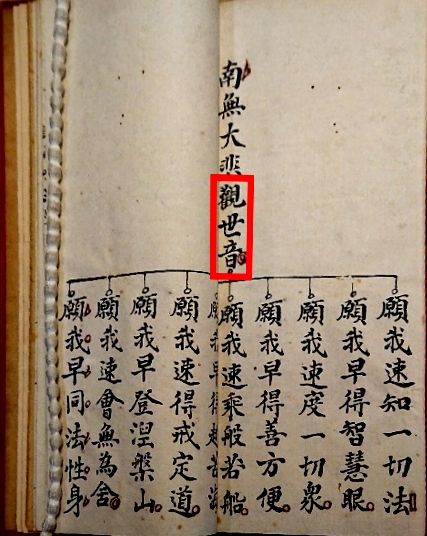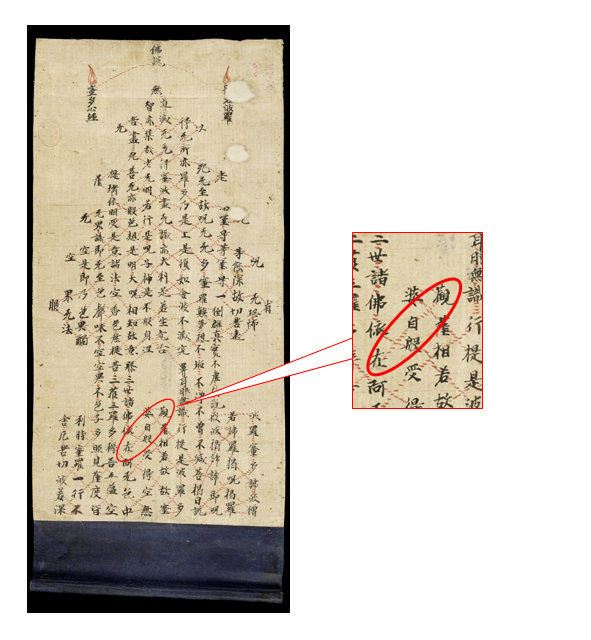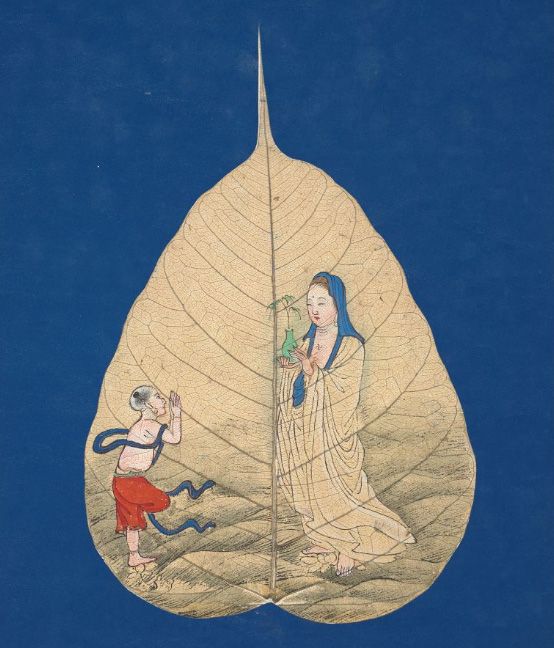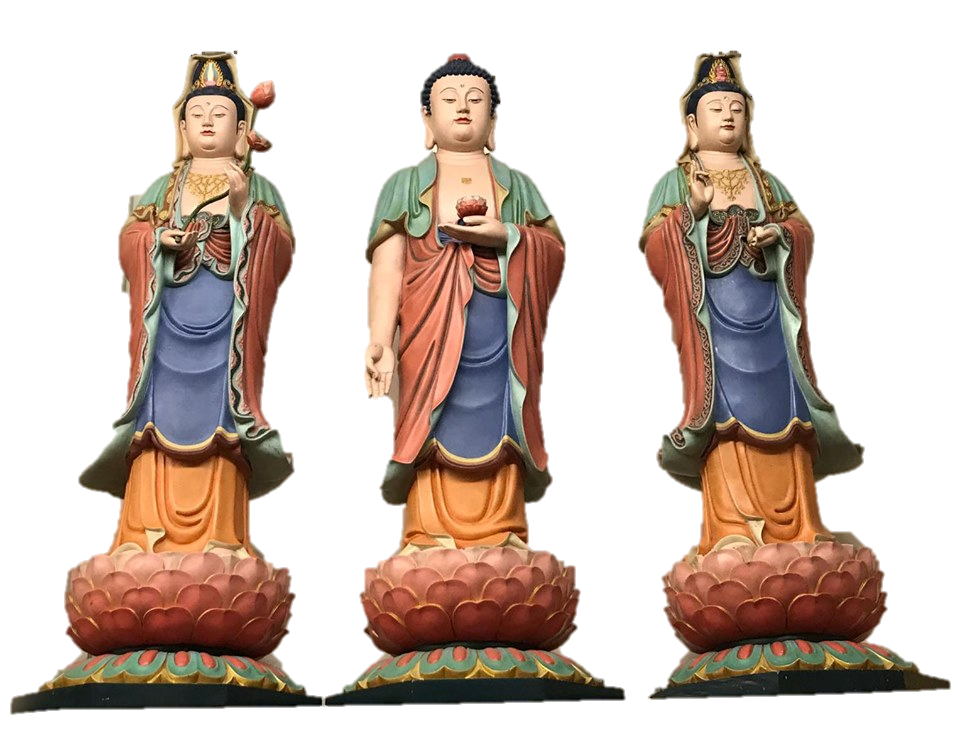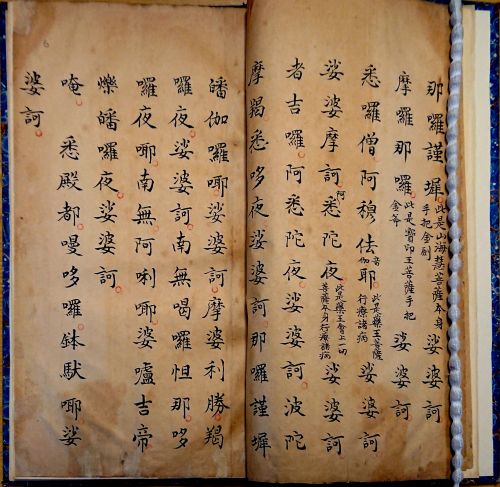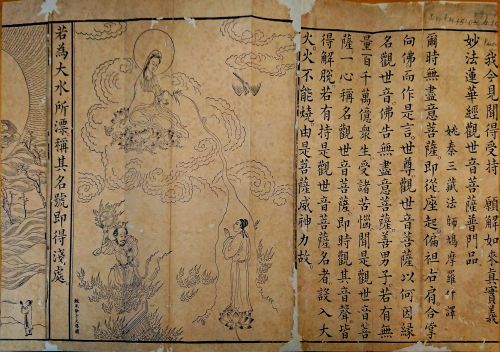The name: caring for all sentient beings
As Buddhism spread eastwards from its Indian heartland, Buddhist terminology in Sanskrit was adapted to other languages using either a sense-for-sense translation or a transliteration derived from the original pronunciation. For example, the name of Amitābha Buddha underwent transliteration to become ‘Amituo’ in Chinese. By contrast, Avalokiteśvara’s name was translated into Chinese based on its meaning and certain aspects of the Bodhisattva’s nature. This approach leaves more room for interpretation and, as a result, there are two common versions of the name, Guanshiyin and Guanzizai.
Guanshiyin, also known as Guanyin, is the name for this Boddhisattva that is seen in most sutras, such as the Etiquette of Great Compassion Repentance. This translation comes from the Sanskrit “Avalokita”, which means to observe (觀[guan]), and “svara”, which means sound (音[yin]). In other words, the Bodhisattva is “the sound-perceiver” or the one who hears the sounds (of sentient beings) of the world (世[shi]). This name is also referred to the Universal Gate Chapter of Lotus Sutra, which says: “Avalokiteśvara Bodhisattva will instantly perceive the sound of their cries, and they (the suffering) will all be liberated”. One possible explanation for this name sometimes being abbreviated is that, in order to avoid the name of Emperor Taizong (598-649) of Tang: 李世民 (Li, Shimin), people took out the second character and shortened the name from Guanshiyin to Guanyin. Either way, this reflects the fact that Guanyin is conscious of the voices of the suffering calling for help and is committed to rescuing these beings in various ways.

